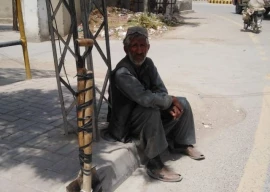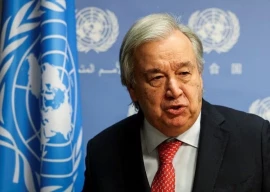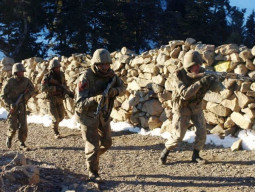It is a lesson that the protestors in the Hazara Division of the newly-renamed province of Khyber-Pakhtunkhwa would do well to remember. While one can understand their sentiments about giving the province the name of an ethnic group other than their own and even support their right to protest the decision, one cannot support arson and violence as a legitimate form of expressing political dissent.
The decision to rename the province was among the most contentious clauses of the Eighteenth Amendment and was debated ad nauseum by several parties, including the ANP, which has support among ethnic Pakhtuns as well as the PML-N, which commands the support of many ethnic Hindko-speakers.
The agreement reached by the two provinces kept in mind the ethnic heritage of the Pakhtuns, who frequently refer to the province as Pakhtunkhwa, while at the same time seeking to give the name a more geographic tone, with the addition of Khyber, a name commonly used in vernacular poetry when referring to the province formerly known as the Frontier.
If the protesters feel hard done by the democratic process, one would ask them what they would want the province to be named. More importantly, why were their elected representatives not the channel through which they chose to voice their opinion?
A republic requires an active civil society making its voice heard through its elected representatives in parliament. If the protesters, who do not represent all Hindko-speakers, truly wish to be taken seriously, then they would do well to play by the rules that everybone else has agreed to. Changing the name of any province can always be lent support as long as the constitutional route is used by those wishing the change.

















COMMENTS
Comments are moderated and generally will be posted if they are on-topic and not abusive.
For more information, please see our Comments FAQ